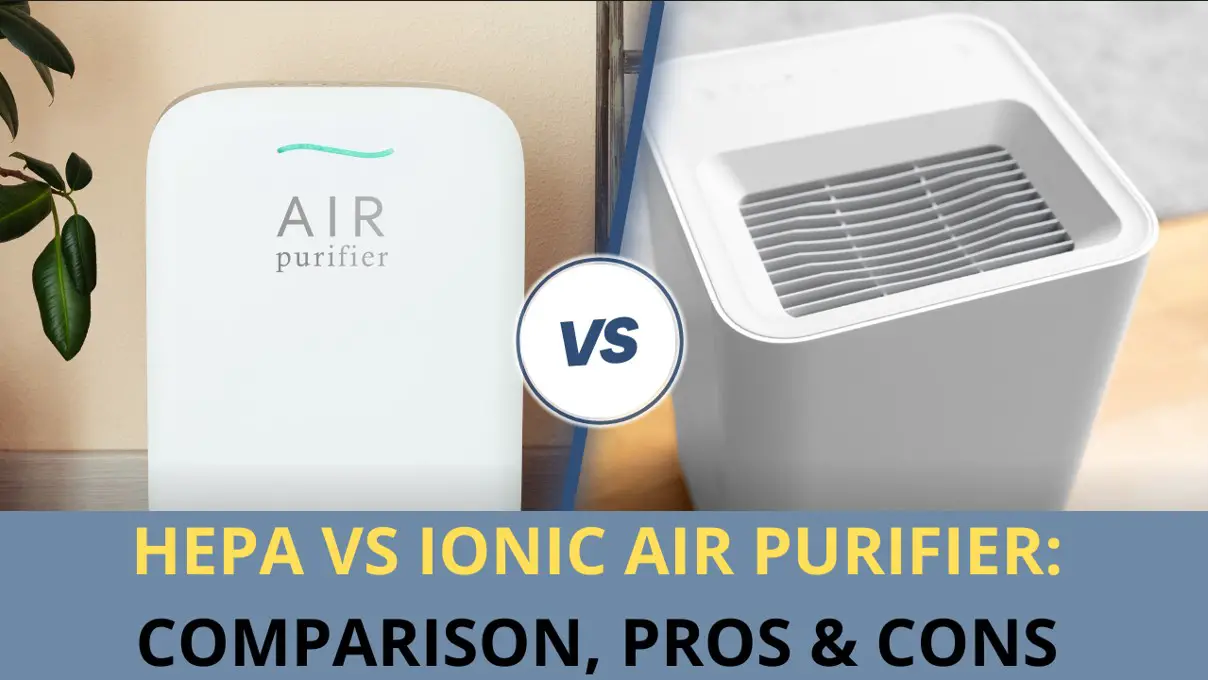To make the air in the room comfortable and safe for health, it makes sense to choose a quality purifier. There are various options, however, models with HEPA filters or ionic designs are in the greatest demand. A detailed comparison of HEPA VS ionic air purifiers will be described in this article.
Which is better to choose: HEPA VS ionic air purifiers?
Before starting to look at the main differences between HEPA VS ionic air purifiers, it is worth considering their basic working principles and features.
Ionic purifiers are inexpensive and easy to maintain when compared to HEPA purifiers.
However, ionic air purifiers cannot completely remove all contaminants from the air. Therefore, if you are looking for an effective and practical air purifier, you should choose a HEPA air purifier.
There aren’t more universal models, because everything depends on many factors.
Both devices differ in the principle of operation, so you have the opportunity to choose the best option for yourself.
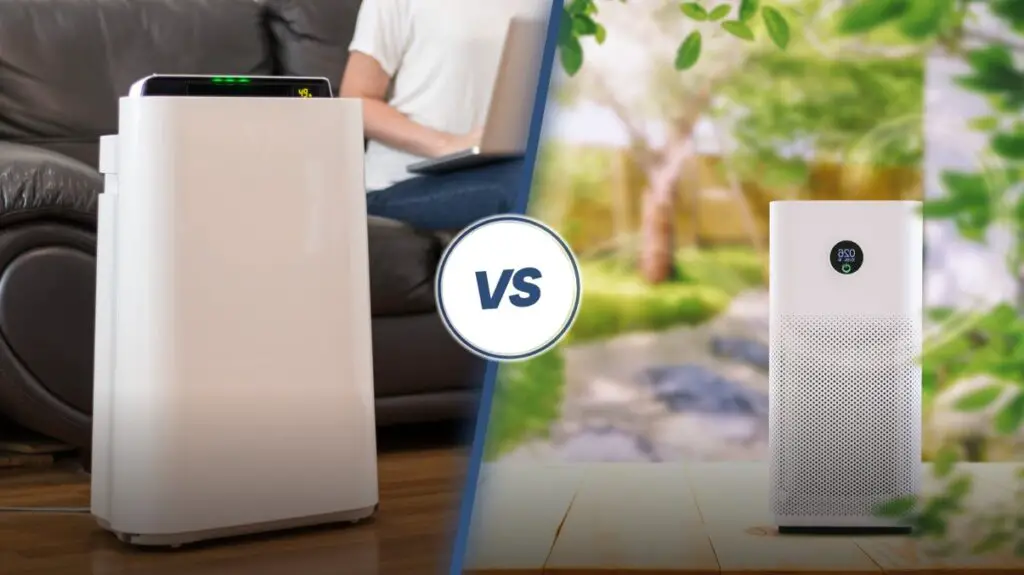
What is the difference between HEPA VS ionic air purifiers?
Both variants of air purifiers can be of several subtypes. At the same time, there are differences in cost, as well as maintenance.
A little about ozone generators
Quite often in stores, there are devices resembling an ionic air purifier. However, it is an ozone generator.
Before buying, you should study everything about ozone generators so as not to take such a device. Manufacturers claim that the devices are effective.
They do not affect indoor air quality and can be harmful to health.
The principle of operation of ionic air purifiers
As mentioned, there are several designs of ionic purifiers. However, the principle of their work is almost identical.
During operation, ionic purifiers use electrical charges to attack contaminants in the air.
The first category of ionic purifiers is called an electrostatic precipitator.
Inside there is a fan that moves 2 electrically charged plates. The impurities that are around will be attracted to one of them, and stick.
There is a second type of construction that does not emit charged ions. On the contrary, they are distinguished by the release of negatively charged ions, which will absorb pollution from the air. Due to the large mass, all contaminants will begin to accumulate on surfaces.
How HEPA purifiers work
On market, there is a wide range of HEPA filters. This is a high-efficiency HEPA filter that removes contaminants.
According to statistics, HEPA filter air purifiers remove almost 99.97% of particles whose size is 0.3 microns.
The human eye can detect particles as small as 50 microns. This suggests that the air purifier will remove much smaller contaminants from the air.
The design is complemented by a fan that will push air through the HEPA filter. Therefore, the HEPA air purifier is distinguished by its loud operation.
I also recommend reading: Do air purifiers help with radon?

Ionic air purifiers: Pros & Cons
Ionic purifiers have several advantages and disadvantages.
I also recommend reading – How much electricity does an air purifier use in different conditions?
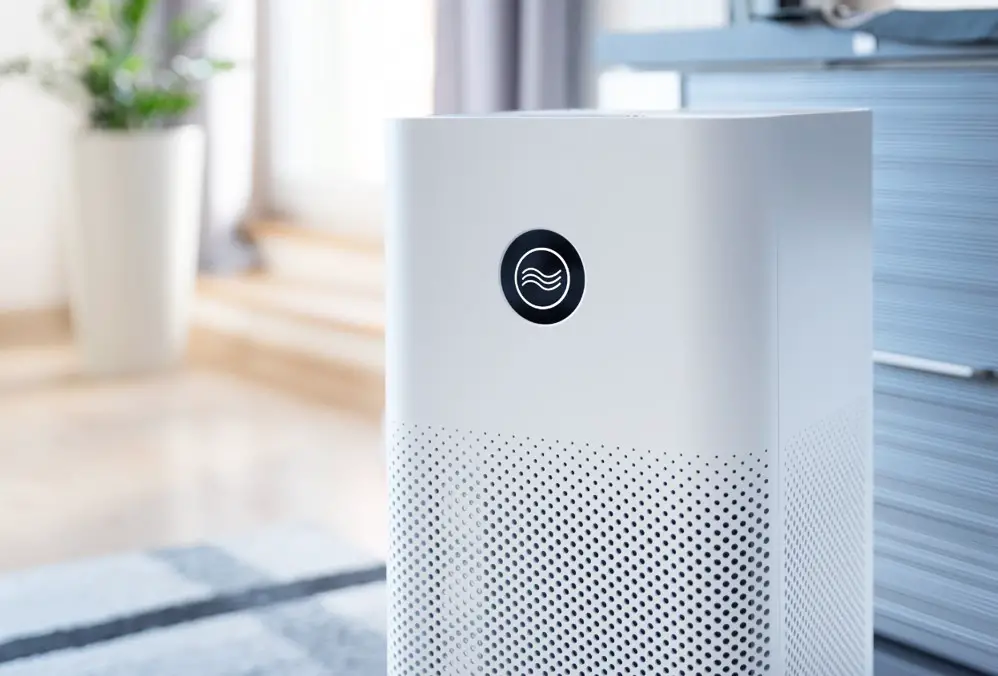
HEPA air purifiers: Pros & Cons
HEPA air purifiers are quite popular. This is due to their many benefits. However, it is necessary to note not only the pros but also the cons.
I also recommend reading: Should you use humidifier or dehumidifier for stuffy nose and how?
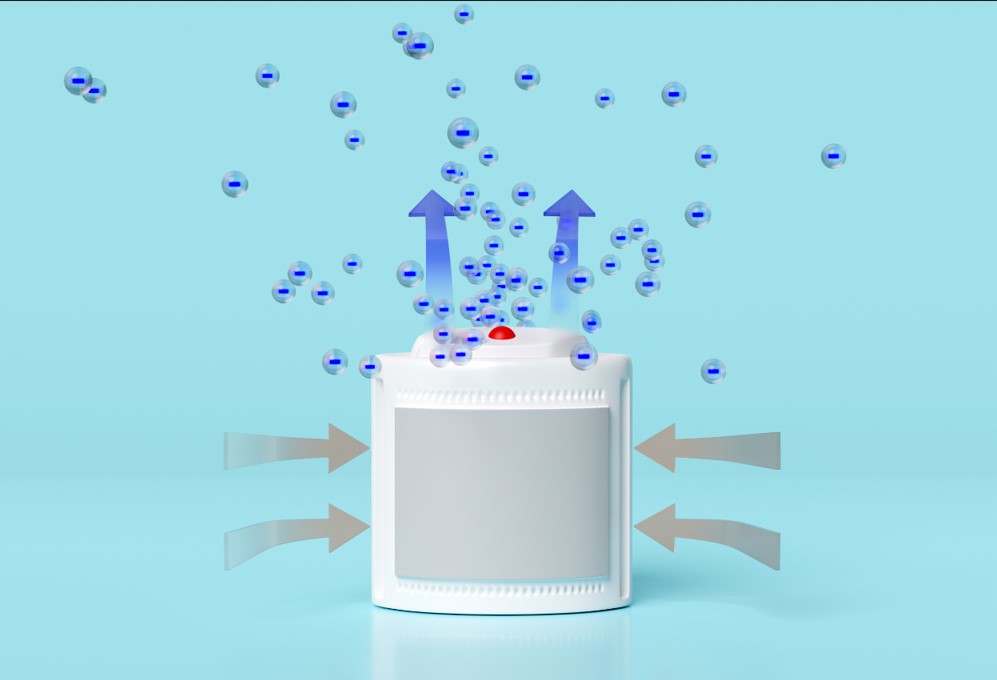
Fight against viruses
You need to understand that an air purifier can clean air but it is not able to completely protect you from viruses. Yes, they can slightly reduce the number of harmful bacteria. However, most of them will remain in the air you breathe.
I also recommend reading – Where to place an air purifier?
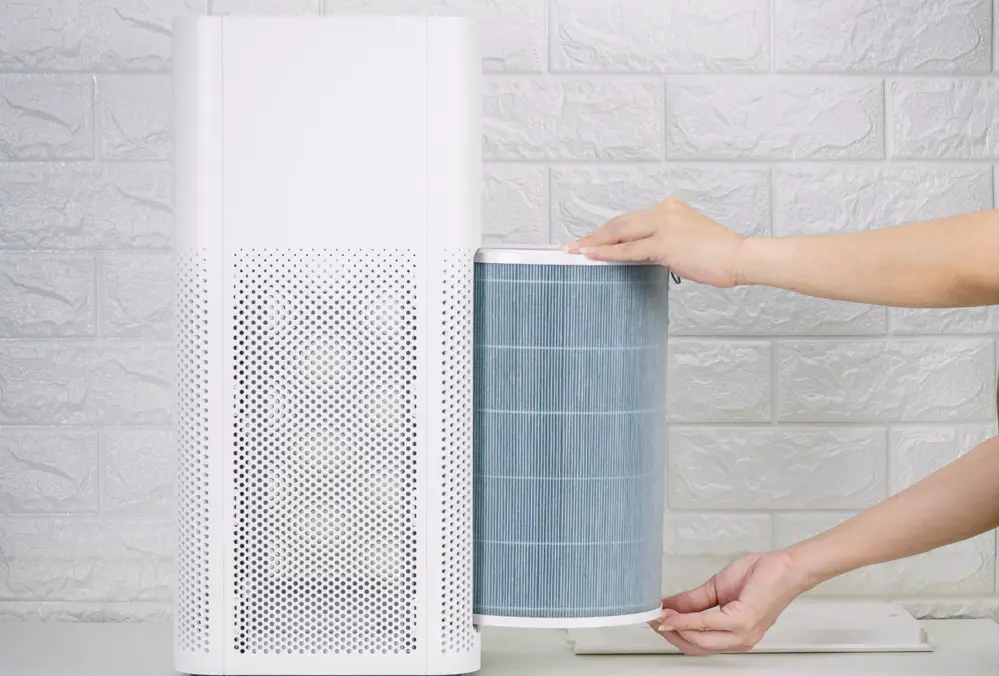
The need for air purifiers
Quite often, people wonder if it is necessary to buy an air purifier. It must be understood that such devices are not necessary.
If you want to slightly improve the quality of your life in the house, then it is better to think about buying. Especially if you often experience signs of allergies.
A purifier is a very good option if there are a lot of irritants in the air. With this device, you can improve your health.
As you know, even in homes where general cleaning is carried out regularly, dust, mites, mold spores, and pollen can be present.
Such irritants are not always capable of causing harm. However, if mold spores begin to develop actively in the house, this can affect well-being.
With the help of an air purifier, various irritants, toxins and pollution can be removed. However, this is not a panacea.
The devices are effective in removing tobacco smoke and making fresh air to keep you comfortable.
If you want your appliance to perform as efficiently as possible, you need to work on reducing the number of airborne contaminants.
I also recommend reading about how many Amps does a dehumidifier use: dehumidifier power efficiency.
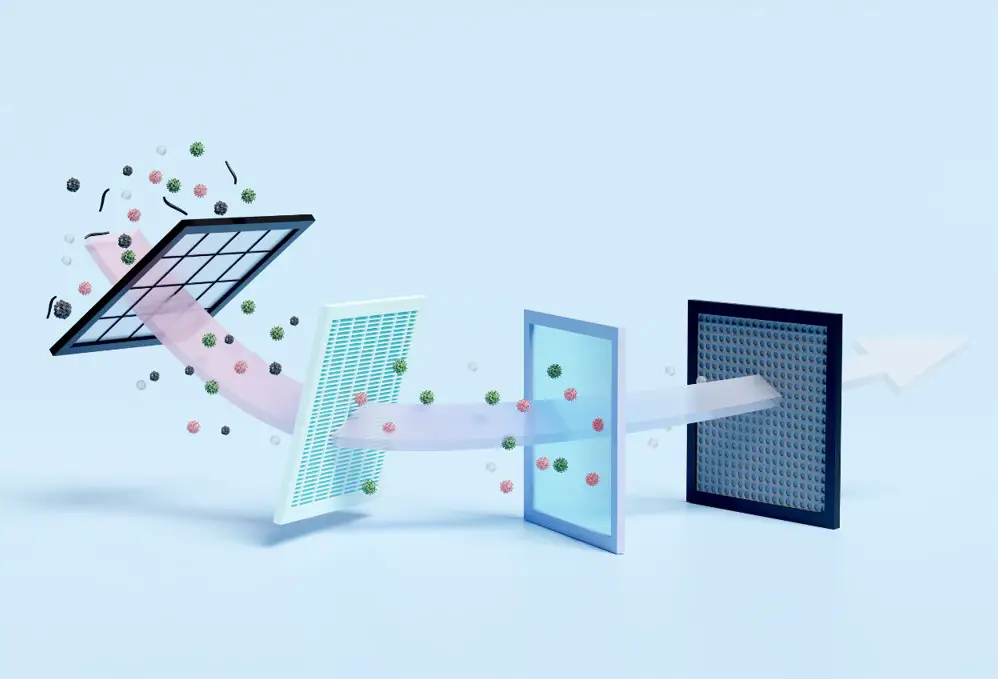
FAQ
Is ionic better than HEPA?
Ionic air purifiers and HEPA air purifiers both have their own advantages and disadvantages, and which one is better depends on the specific needs and preferences of the user.
Ionic air purifiers use negatively charged ions to attract and trap pollutants in the air. They can be effective in removing small particles from the air, such as smoke, pollen, and dust. However, they may not be as effective in removing larger particles or allergens.
HEPA air purifiers use a physical filter to trap particles in the air. They are very effective at removing a wide range of pollutants, including allergens, dust, and pet dander. However, they may not be as effective at removing odors or volatile organic compounds (VOCs).
What is the difference between ionic and HEPA air purifiers?
While both types of air purifiers are effective at removing pollutants from the air, there are some differences in their effectiveness and maintenance requirements. Ionic air purifiers can be effective at removing small particles, but may not be as effective at removing larger particles or allergens. HEPA air purifiers are highly effective at removing a wide range of pollutants, including allergens and larger particles. Additionally, HEPA filters need to be replaced periodically, while ionic air purifiers typically require less maintenance.
What air purifier is better than HEPA?
HEPA air purifiers are considered to be among the most effective air purifiers on the market today. However, there are some other types of air purifiers that are also highly effective in purifying the air. Here are some types of air purifiers that are sometimes considered to be better than HEPA:
1. Electrostatic air purifiers.
2. UV-C air purifiers.
3. Activated carbon air purifiers.
4. Photocatalytic air purifiers.
It’s worth noting that while these air purifiers can be highly effective at removing specific types of pollutants, they may not be as effective as HEPA filters in capturing a wide range of particles and pollutants. It’s important to consider your specific needs and preferences when choosing an air purifier.
Are ionizers as good as air purifiers?
Ionizers are a type of air purifier that use negatively charged ions to attract and trap airborne particles, such as dust, pollen, and smoke. While ionizers can be effective at removing some types of pollutants from the air, they are generally not as effective as other types of air purifiers, including HEPA air purifiers.
One of the main drawbacks of ionizers is that they can produce ozone as a byproduct, which can be harmful to human health in high concentrations. While most ionizers are designed to produce only small amounts of ozone, it’s important to be aware of the potential risks.
In addition, ionizers may not be as effective at removing larger particles, such as pet dander or mold spores, as HEPA air purifiers. HEPA filters are highly effective at trapping a wide range of particles, including allergens, bacteria, and viruses, and are often recommended for people with allergies, asthma, or other respiratory conditions.
Overall, while ionizers can be a good choice for some specific applications, such as removing odors or smoke from the air, they are generally not as effective as HEPA air purifiers in purifying the air. It’s important to carefully consider your specific needs and preferences when choosing an air purifier.
I also recommend reading: How you can get cool air from one room to another?
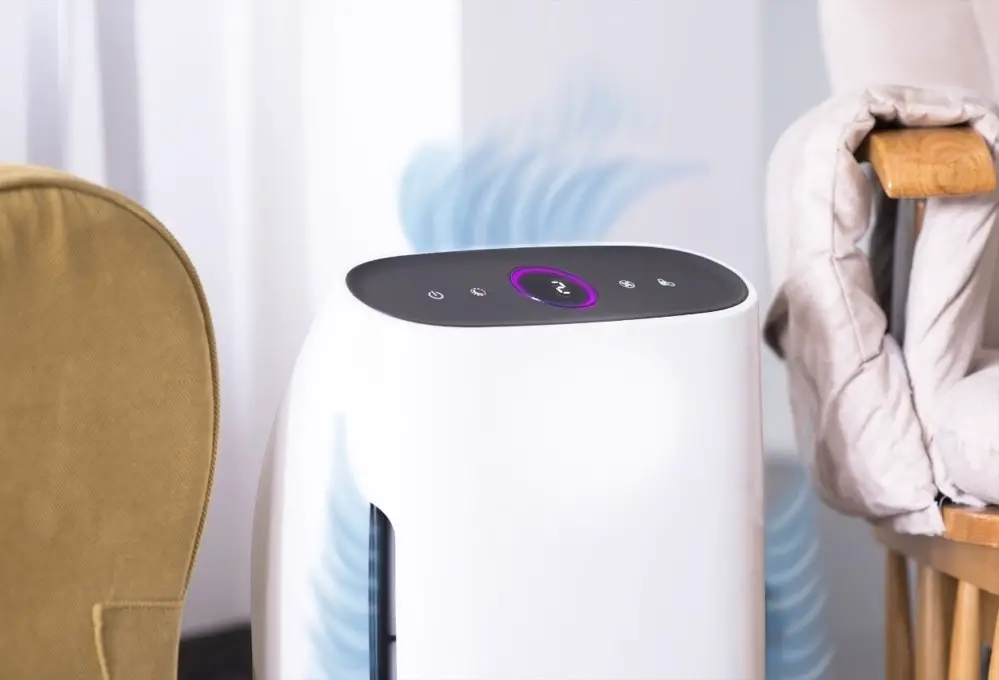
Results
As you can see from the comparison of an ionic air purifier VS a HEPA purifier, it is impossible to say which device is the best option. When choosing, be guided by the state of your health, air quality, and the size of the room.
Read also: Remove pet hair from air: best ways and tools

